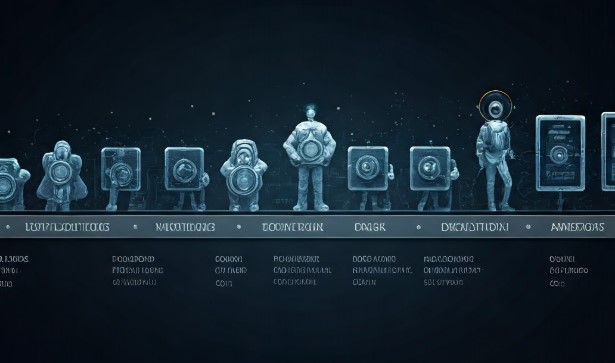
Unlocking the Power of AI Automation Ads
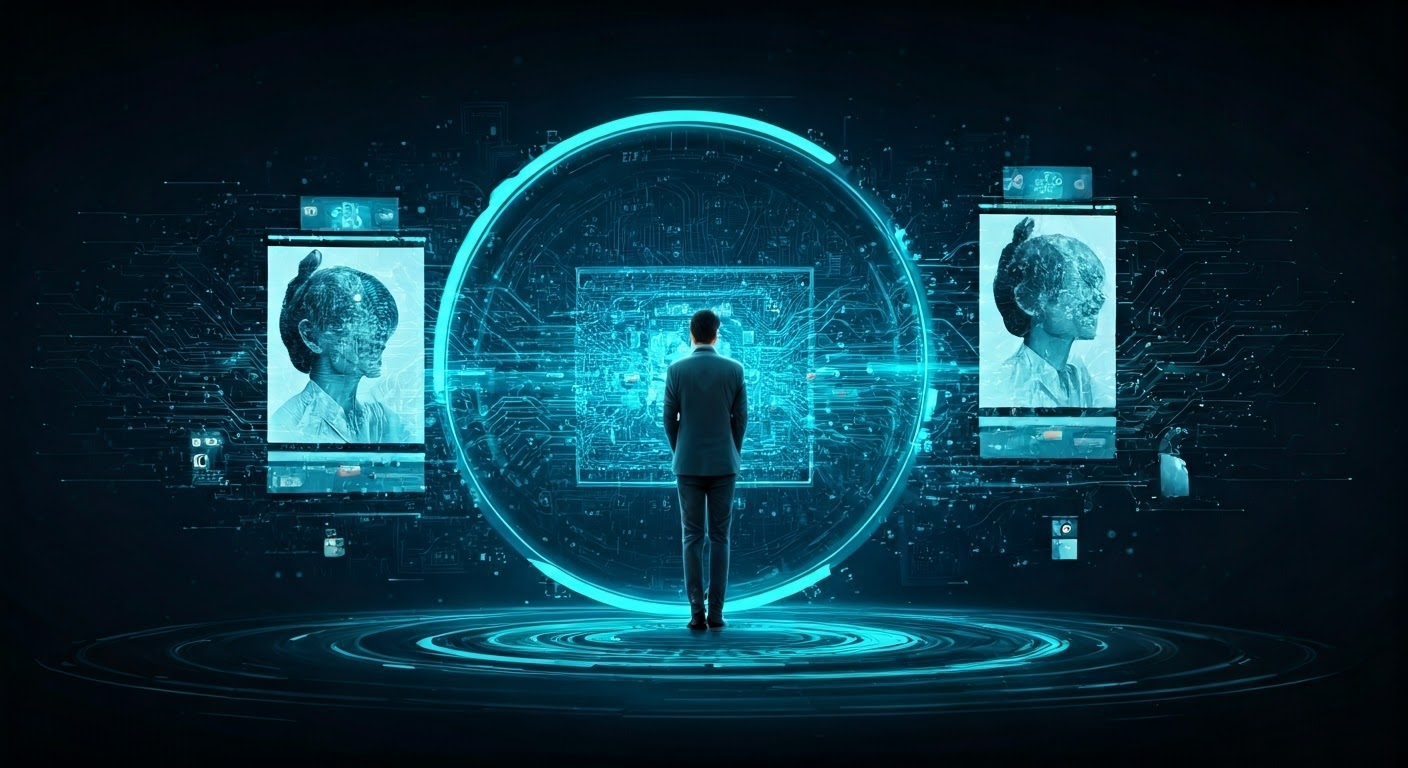
Key Highlights
- Explore how AI automation is revolutionizing digital marketing through powerful ad campaigns.
- Understand the impact of historical data and the power of AI in transforming advertising strategies.
- Discover the role of AI in enhancing ad creation, placement, targeting, and personalization on various platforms.
- Learn about the key benefits of using AI automation to boost customer engagement and streamline ad operations efficiently.
- Gain insights into selecting the right AI automation tools for your ad campaigns and implementing AI strategies effectively.
- Uncover the future trends and emerging technologies that will shape the field of advertising through AI automation.
Introduction
In today's rapidly evolving digital marketing landscape, harnessing the power of AI in digital advertising is no longer optional—it's essential. By analyzing historical data and understanding user behavior, AI is transforming advertising, making campaigns more targeted, efficient, and impactful than ever before.
The Evolution of AI in Advertising
From the early days of basic rule-based automation to today's sophisticated machine learning algorithms, artificial intelligence's role in advertising has grown exponentially. What began as a way to streamline simple tasks has evolved into a powerful tool that can analyze complex data sets, anticipate customer behavior, and personalize ad experiences in real-time.
How AI Has Transformed Ad Creation and Placement
Machine learning has revolutionized how ads are conceived, designed, and delivered through the app. No longer are marketers solely reliant on intuition and manual A/B testing. Now, AI algorithms can analyze vast datasets to determine the most effective ad content, including visuals, copy, and even emotional tone, for specific audience segments.
This data-driven approach extends to placement as well. AI can identify the optimal social media platforms and websites, including Facebook Ads, to reach the target audience, ensuring maximum visibility and engagement. This means your ads are more likely to be seen by the right people at the right time, leading to higher click-through rates and conversions.
The Role of AI in Targeting and Personalization
The ability to personalize ad experiences is a game-changer in today's digital landscape. Consumers are bombarded with countless messages daily, and they're more likely to engage with those that resonate on a personal level, especially through effective visitor segmentation.
AI makes this level of personalization achievable at scale. By analyzing vast amounts of data, including browsing history, purchase patterns, and demographic information, AI can create detailed customer profiles that go far beyond basic demographics. This in-depth understanding allows marketers to deliver highly targeted ads that cater to individual preferences and needs, leading to a more meaningful customer experience.
Key Benefits of AI Automation in Ads
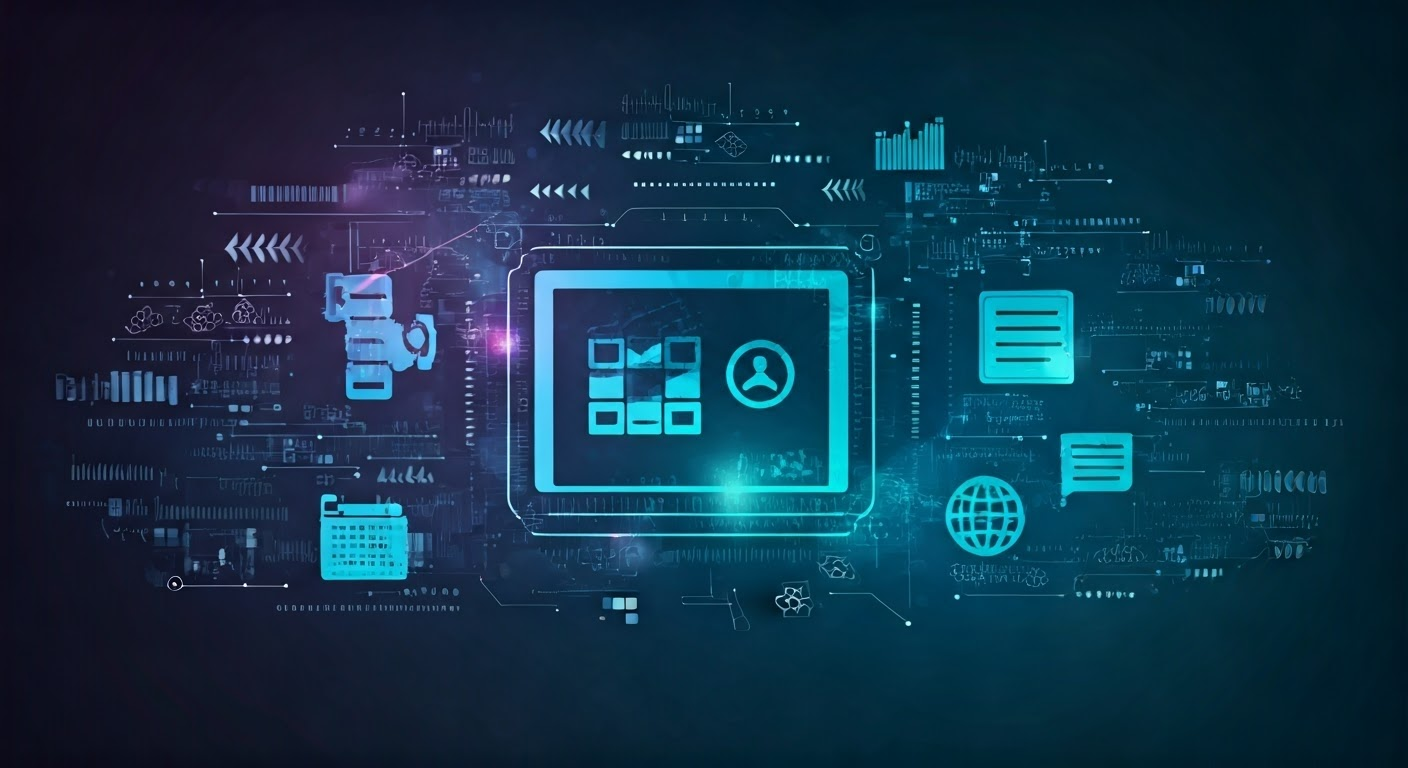
The integration of AI into advertising offers a range of benefits, from increased efficiency to data-driven insights. The use of AI in automating repetitive tasks frees up marketers to focus on strategy and creativity.
Moreover, AI's ability to analyze complex datasets enables marketers to make informed decisions, optimize campaigns in real-time, and ultimately achieve a higher return on investment.
Enhancing Customer Engagement Through Precision Targeting
Gone are the days of generic ad campaigns that cast a wide net hoping to capture a few leads. AI enables precision targeting, allowing marketers to reach the right target audience with pinpoint accuracy. This ensures that marketing budgets are used effectively, minimizing wasted ad spend and maximizing impact.
Through predictive analysis, AI identifies patterns and trends, allowing marketers to anticipate customer needs and improve SEO to deliver highly relevant ads at the optimal moment. This precision targeting leads to increased customer engagement, higher conversion rates, and, ultimately, stronger brand loyalty.
Streamlining Ad Operations for Efficiency
Before AI, managing ad campaigns was a time-consuming process, often requiring manual adjustments and constant monitoring. AI streamlines ad operations, automating repetitive tasks like bid management, budget allocation, and pricing performance tracking, giving marketers more time to focus on strategic initiatives.
With AI handling the day-to-day management, teams can dedicate their efforts to refining strategies, testing new creative concepts, and analyzing campaign performance for continuous improvement. This shift towards automation not only saves time and resources but also allows for more agile and responsive ad campaigns that can adapt to changing market conditions.
Boosting ROI with Data-Driven Insights
One of the most significant advantages of AI automation in ads is its ability to provide actionable data-driven insights. By analyzing vast datasets, AI uncovers patterns and trends that would be impossible for humans to detect, leading to a deeper understanding of customer behavior and campaign performance.
These insights empower marketers to make data-backed decisions, optimize their marketing efforts with precision, and ultimately boost ROI. Whether it's identifying the most effective ad creatives, uncovering hidden audience segments, or predicting future campaign performance, AI provides the intelligence needed to transform advertising from a cost center into a revenue driver.
Understanding AI Automation Tools for Ads
The market for AI advertising tools is booming, offering a solution for nearly every need and budget. From tools that specialize in ad copywriting to platforms that automate entire social media ad campaigns, understanding the options available is crucial for selecting the right tools to achieve specific marketing objectives.
Types of AI Tools Available for Marketers
Navigating the world of AI tools can feel overwhelming, but understanding the core categories can simplify the process. Here's a breakdown of common AI advertising tools:
AI Tool Type
Description
Ad Creative Generators
Automate the creation of ad copy, headlines, and visuals based on campaign goals and data.
Audience Targeting Tools
Analyze data to identify and segment potential customers based on demographics, interests, etc.
Predictive Analytics Platforms
Forecast campaign performance, identify emerging trends, and anticipate customer behavior.
Ad Optimization Software
Monitor and adjust bids, budgets, and targeting parameters in real-time to maximize ROI.
Selecting the Right AI Automation Tool for Your Needs
With numerous options available, choosing the right AI automation tool, such as ChatGPT, depends on several factors. Consider your specific use case, campaign goals, budget, and the level of technical expertise within your team.
Evaluate the tool's ease of use, integration capabilities with existing marketing strategies, and the level of support provided. The ideal tool should align seamlessly with your existing workflow, enhance your team's capabilities, and provide tangible results that contribute to business growth.
Implementing AI Automation in Your Ad Campaigns
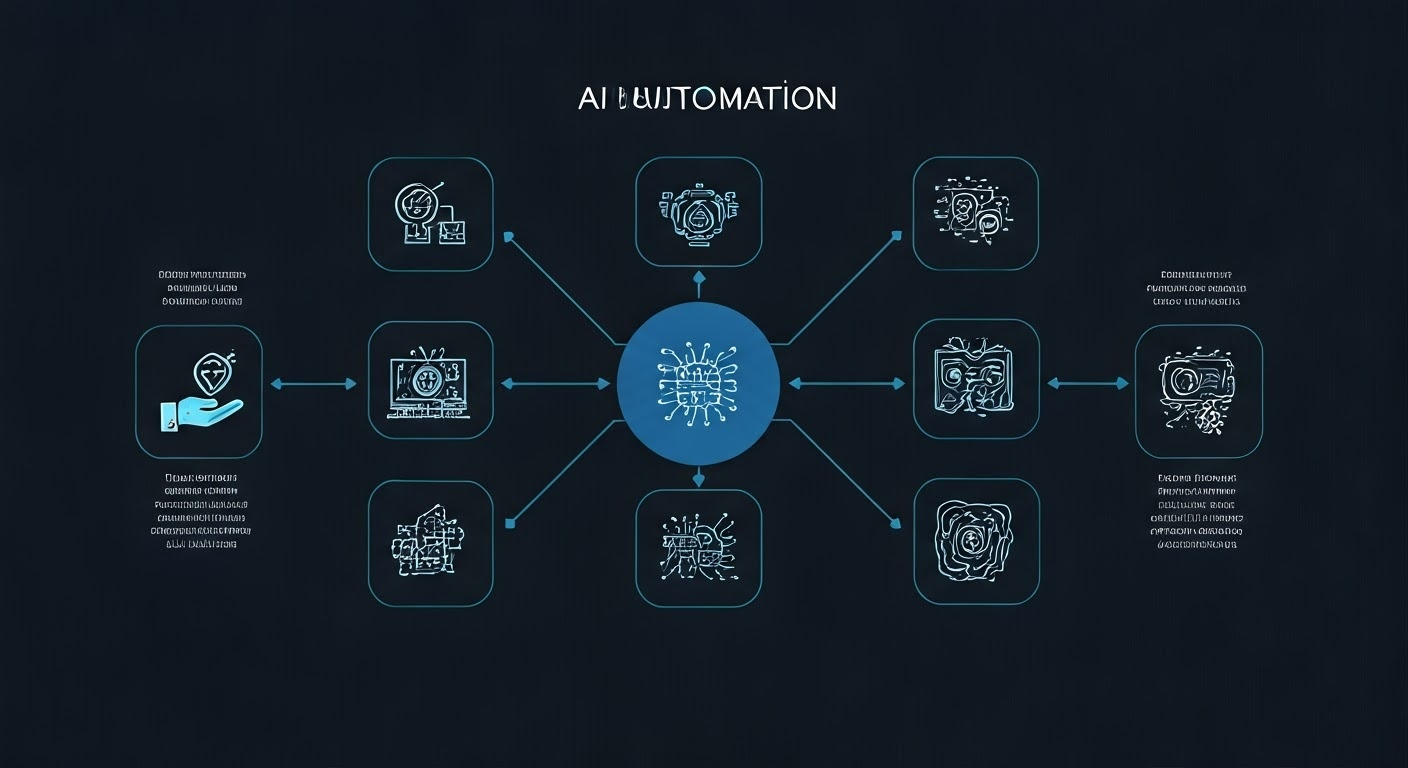
Integrating AI automation into ad campaigns doesn’t require a complete overhaul of existing processes. Start by identifying areas where AI can make the most significant impact, such as automating repetitive tasks or improving targeting accuracy.
Gradual implementation, coupled with continuous monitoring and optimization, allows for seamless integration and ensures that AI tools complement and enhance existing workflows.
Steps to Integrate AI Automation into Ad Strategies
- Identify Areas for Improvement: Begin by analyzing current ad campaigns and workflows. Pinpoint areas where AI could enhance efficiency, targeting, or performance.
- Define Clear Objectives: Before selecting any AI tools, establish specific and measurable goals for what you aim to achieve through automation, whether it’s increasing conversions, reducing cost-per-click, or improving ROI.
- Start with Small-Scale Implementation: Don't feel pressured to automate everything at once. Begin by integrating AI into a single campaign or a specific aspect of your workflow to test its effectiveness and refine your approach.
AI in advertising isn't a one-size-fits-all solution—it's a game changer that requires a strategic approach. By gradually integrating AI tools and adapting your marketing campaigns based on real-time data and insights, you can unlock the true potential of AI automation to achieve more in less time.
Real-World Success Stories of AI Automation in Ads
Numerous businesses have witnessed remarkable improvements in their ad campaigns through AI automation:
- Ecommerce giants like Amazon attribute a significant portion of their sales to AI-powered product recommendations, demonstrating the power of personalized advertising.
- Social media platforms like Facebook and Instagram leverage AI to optimize ad delivery and targeting, resulting in higher engagement rates and lower cost-per-click for advertisers.
These real-time examples highlight the transformative impact of AI in driving tangible results. By analyzing vast amounts of data, these platforms can customize ad experiences to individual users, leading to increased click-through rates, conversions, and ultimately, a higher return on investment for advertising spend.
Overcoming Challenges in AI Ad Automation
While AI offers tremendous potential, it's crucial to acknowledge the challenges, too. Addressing concerns about data privacy, ensuring transparency in algorithms, and finding the right balance between automation and human oversight are essential for ethical and successful AI implementation.
Identifying Common Pitfalls and Solutions
- Over-Reliance on Automation: While AI excels at efficiency, it's crucial to retain the human touch, particularly in areas like customer service and creative strategy. Striking a balance between AI automation and human involvement is essential.
- Lack of Transparency: Black box algorithms—those whose decision-making processes are opaque—can erode trust and hinder optimization. Prioritize tools that offer transparency and provide insights into how decisions are made.
- Data Privacy Concerns: Collecting and using personal data for AI-driven advertising requires responsible practices. Obtain explicit consent, prioritize data security, and ensure compliance with relevant regulations.
Ensuring Privacy and Compliance in AI-Driven Ads
As AI in advertising often relies on personal data, ethical considerations are paramount. Marketers must prioritize transparency, giving users control over their data and providing clear information about how their information is used to personalize ad experiences.
Adhering to privacy regulations like GDPR and CCPA is non-negotiable. Adhering to these standards not only builds trust with customers but also ensures that your AI-driven advertising practices are ethical and sustainable.
The Future of Advertising with AI Automation
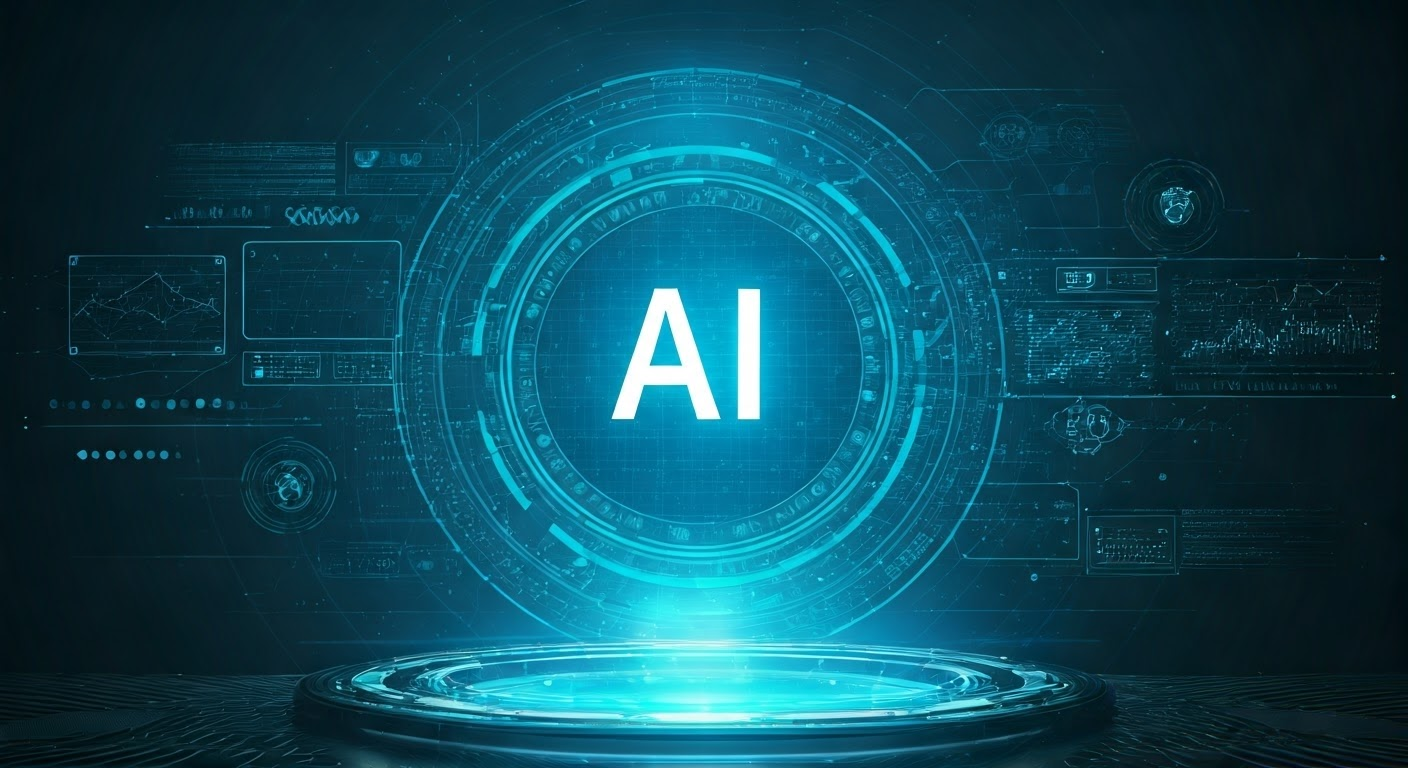
The future of advertising is inextricably linked with AI. As technology advances, we can anticipate even more sophisticated applications of AI, leading to hyper-personalization, enhanced ad experiences, and a deeper understanding of consumer behavior.
Embracing these advancements will be crucial for marketers to stay competitive and deliver impactful campaigns that resonate with increasingly discerning audiences.
Emerging Trends in AI and Advertising
The realm of AI in advertising is constantly evolving. Emerging trends like generative AI are changing the content creation game, enabling marketers to produce high-quality ad copy and visuals for platforms like TikTok with unprecedented speed and efficiency.
The rise of AI-powered influencer marketing platforms is another notable development, connecting brands with relevant influencers and automating many aspects of campaign management. As these trends continue to shape the advertising landscape, staying informed and adapting quickly will be key to harnessing the full potential of AI.
Preparing for the Next Wave of AI in Ads
The rapid pace of AI advancement requires marketers to adopt a forward-thinking mindset. Investing in continuous learning, exploring new tools, and fostering a culture of experimentation within marketing teams will be crucial.
Staying informed about emerging trends like predictive analysis and leveraging the ever-growing amount of data available will enable marketers to refine their strategies and remain at the forefront of AI-driven advertising. The ability to adapt quickly and make data-backed decisions will be paramount to success in the future of advertising.
KeywordSearch: SuperCharge Your Ad Audiences with AI
KeywordSearch has an AI Audience builder that helps you create the best ad audiences for YouTube & Google ads in seconds. In a just a few clicks, our AI algorithm analyzes your business, audience data, uncovers hidden patterns, and identifies the most relevant and high-performing audiences for your Google & YouTube Ad campaigns.
You can also use KeywordSearch to Discover the Best Keywords to rank your YouTube Videos, Websites with SEO & Even Discover Keywords for Google & YouTube Ads.
If you’re looking to SuperCharge Your Ad Audiences with AI - Sign up for KeywordSearch.com for a 5 Day Free Trial Today!
Conclusion
In conclusion, embracing AI automation in advertising, including tools like Google Ads, is no longer an option but a necessity to stay competitive in the digital landscape. The evolution of AI has revolutionized ad creation, targeting, and personalization, leading to enhanced customer engagement and increased ROI. By leveraging data-driven insights and precision targeting, businesses can streamline operations and boost efficiency. While challenges like privacy and compliance exist, the future of advertising with AI automation is promising, with emerging trends shaping the next wave of innovation. Understanding and implementing the right AI tools, such as Google Ads, will be key to unlocking the full potential of AI in ad campaigns. Stay ahead of the curve by integrating AI automation into your strategies today.
Frequently Asked Questions
What is AI Automation in Advertising?
AI automation in advertising uses AI to streamline and optimize marketing campaigns with the power of automation. It involves automating tasks such as ad optimization, ad targeting, and even content creation, freeing up marketers to focus on strategy.
How Do AI Automation Tools Improve Ad Performance?
AI tools analyze data to identify patterns, optimize bidding strategies, and personalize ad experiences. This data analysis leads to more effective targeting, improved conversion rates, and a higher ROI.
Can Small Businesses Benefit from AI Ad Automation?
Absolutely! AI ad automation isn't just for large corporations. Many affordable tools cater to small businesses, making cost-effective targeted advertising accessible and manageable.
What are the Ethical Considerations in AI-Driven Advertising?
Ethical considerations include data privacy, transparency in how algorithms operate, and accountability for decisions made by AI. Marketers must prioritize user privacy, obtain consent, and avoid perpetuating bias.
How to Get Started with AI Automation for Ads?
Begin by defining your advertising goals and identifying areas where AI could be most beneficial. Research and select AI automation tools that align with your needs and budget. A well-defined strategy is key before integration.
